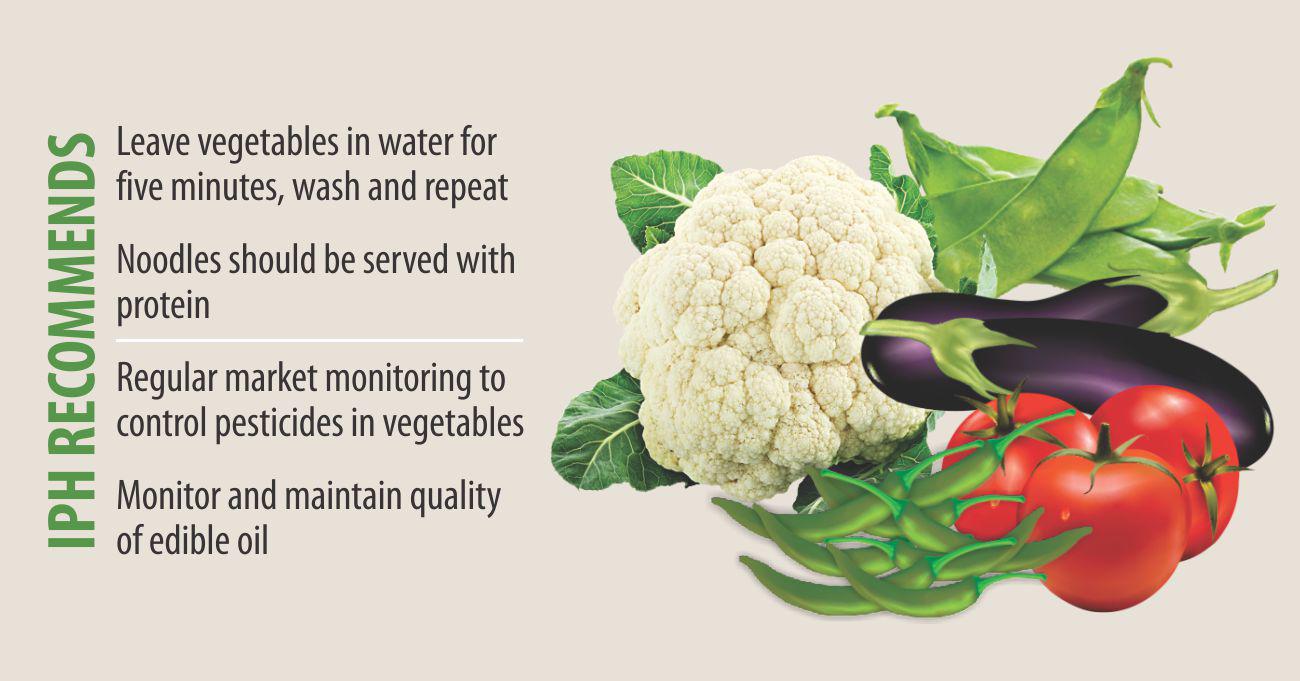Some veggies not that safe
Consumers in Bangladesh are still unsure if the vegetables in their daily dishes are safe even though four years have gone by since the Food Safety Act was enacted.
A food safety authority was also formed in 2015 but a government lab test has found pesticide residues in a number of samples of vegetables. Residue levels in some of them were even alarming.
The test also found that the majority of the edible oil samples lacked “standard values of oil characteristics”, and some noodles had less than desired levels of protein in them.
The Institute of Public Health (IPH) carried out the chemical and microbiological contamination test at the National Food Safety Laboratory between January and March and revealed the results yesterday.

The IPH, however, noted that following a first and a second wash of chillies, pesticide residues reduced 41 and 61 percent respectively but four samples still had alarming levels of contamination, above the maximum residue limit (MRL).
Half the beans samples had pesticide residues and one sample had above the residue limit.
Of the 30 cauliflower samples, 12 had pesticide residues while one eggplant was found contaminated.
The vegetables had residues of Chloropyrifos and Dimethoate brands of pesticides, which are used for killing insects and worms. Introduced in the 1950's and 60's by two US companies, they attack the nervous system of pests and are rated highly toxic and hazardous.
Referring to a World Health Organisation (WHO) estimate, an earlier IPH report had said there were three million global cases of acute and severe pesticide poisoning with some 220,000 deaths every year, the majority of which were in developing countries.
The IPH could not offer any country-specific statistics.
It also carried out tests on samples of noodles, edible oil and snacks sold outside schools.
It found less than desired level of proteins in 13 out of 55 noodle samples of different brands.
The IPH's tests on street food revealed that the majority of jhalmuri, fuchka, velpuri samples had higher than permissible levels of coliforms (bacteria) and yeast moulds.
- Pls upvote and follow me @imtiaj07 for more news